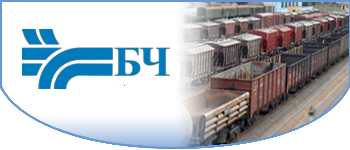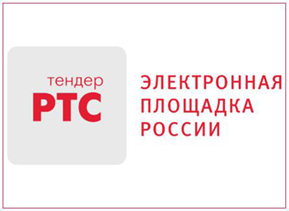Increasing exports of products and services is one of the priority areas of economic development of the Republic of Belarus. Supply of products and services to international markets provides for the inflow of foreign currency to the country, increase of enterprises work load, creation of new jobs, and receipts from taxation and customs duties to the budget. At the same time, a significant share of export in the country’s GDP makes the national economy dependent on the world market conditions and therefore more exposed to external economic risks.
Belarus is actively using its favorable geographical location, developing export of transport and logistics services. Information technology is becoming a key economic driver. Exports of IT services and high-tech products occupy an increasingly large part in the structure of trade turnover, creating additional incentives for the development of domestic science, education and advanced high-tech industries oriented towards them. Moreover, the products of traditional industries, which production is often associated with the procurement of imported raw materials, energy, and intermediate goods, make a significant import component in the final cost, that as a result adversely affects their competitiveness in foreign markets. Minimization of the specified adverse effects requires various export supporting mechanisms, including financial ones.
The currently central problem of economic development strategy of the Republic of Belarus is gradual transition from further reduction of import crediting and financing to higher crediting of exports of Belarusian goods. To this end savings of residents of the Republic of Belarus, both legal entities and individuals should be used as a source of crediting the buyers of Belarusian export goods by non-residents of the Republic of Belarus.
Basically, export crediting is effected from:
– loans extended to large export projects and programs by banks;
– resources of international capital markets attracted for crediting strategic exporters within trade financing;
– credit support for production of export-oriented goods in the exporter’s country;
– loans extending against export goods at various stages of delivery to the customer used as security; and
– financing innovative marketing technologies.
Loans extended to non-resident importers of Belarusian goods by domestic banks may be considered a separate form of promoting exports from the Republic of Belarus.
The instrument of government export support provides for payment of compensation to banks at the expense of the government budget as a difference between commercial interest reference rates (CIRRs) and the average market rate on currency loans in the monetary market of the Republic of Belarus.
Foreign trade financing is a structural element of the government’s foreign trade policy, since by using its instruments the government can stimulate foreign trade operations due to significant restrictions on other ways of stimulating national exports by international organizations and treaties. Despite significant successes achieved in recent years, the problem of negative trade balance still remains urgent in the Republic of Belarus.
In the Republic of Belarus export-oriented growth is inhibited by the following factors:
– high dependence of Belarusian exports on price factor;
– high concentration of national exports by product group;
– risks of excessively high use of government support and stimulation mechanisms for domestic demand to meet social indicators to the prejudice of export-oriented sectors of economy;
– low international rating of Belarusian banks.
The Republic of Belarus has created the required legal base as an institutional groundwork for operation of the export support system. Presidential decree No.534 of August 25, 2006 “On promoting export of goods (works, and services)” is a fundamental document in government-supported export crediting and insurance against export risks”. Government-supported insurance against export risks is provided by BRUPEIS “Beleximgarant”, an authorized insurance company. Insurance indemnity for the above risks may be paid from special provisions in the government budget as the need arise.
The National Export Support and Development Program for 2016 – 2020 was approved by Resolution of the Council of Ministers of the Republic of Belarus on August 1, 2016. The Program provides for the current and long-term measures as well as those aimed at reducing the impact of foreign economic challenges and diversification of foreign economic relations through the use of government backing mechanisms Moreover, Presidential Decree No. 412 “On Export Support” was signed on November 14, 2019. The document is aimed at reducing expenses of the Belarusian business entities and thereby creating additional conditions for increasing the volume of export of goods and services. The Decree introduces export support instruments widely used by the World Trade Organization member states. In particular, it provides for compensation up to 50% of exporters’ expenses for participation in specialized international exhibitions held in foreign countries (rental of display space and equipment, assistance in installation of display stands and creation of temporary exhibition infrastructure (structures) from budgetary funds, thereby enabling them to establish direct contacts with potential consumers and evaluate competitors. Provision is also made for compensating expenses for conformity assessment of products in foreign countries, since certification abroad is usually fairly burdensome from a financial and organizational point of view.
The Belarusian export promotion system focuses on giving financial support through export crediting and export risk insurance. Export loans are granted to both residents of Belarus – entities and individuals registered as individual entrepreneurs, and non-residents, including foreign banks.
The indirect support measures for exporters may include VAT exemptions and certain customs privileges for import. These privileges are not restricted to supporting Belarusian exporters, but they can undoubtedly produce positive effect on business activities of enterprises by motivating them to export.
Thus, as for this date the Republic of Belarus has all the necessary mechanisms in place for financial support of exports. Their use is directly subject to external economic situation and, when used as a package, can significantly increase the competitive capacity of Belarusian products in foreign markets, the economic effect from marketing of which will exceed the funds spent on supporting export enterprises.











 Petr Vabishchevich
Petr Vabishchevich













































































